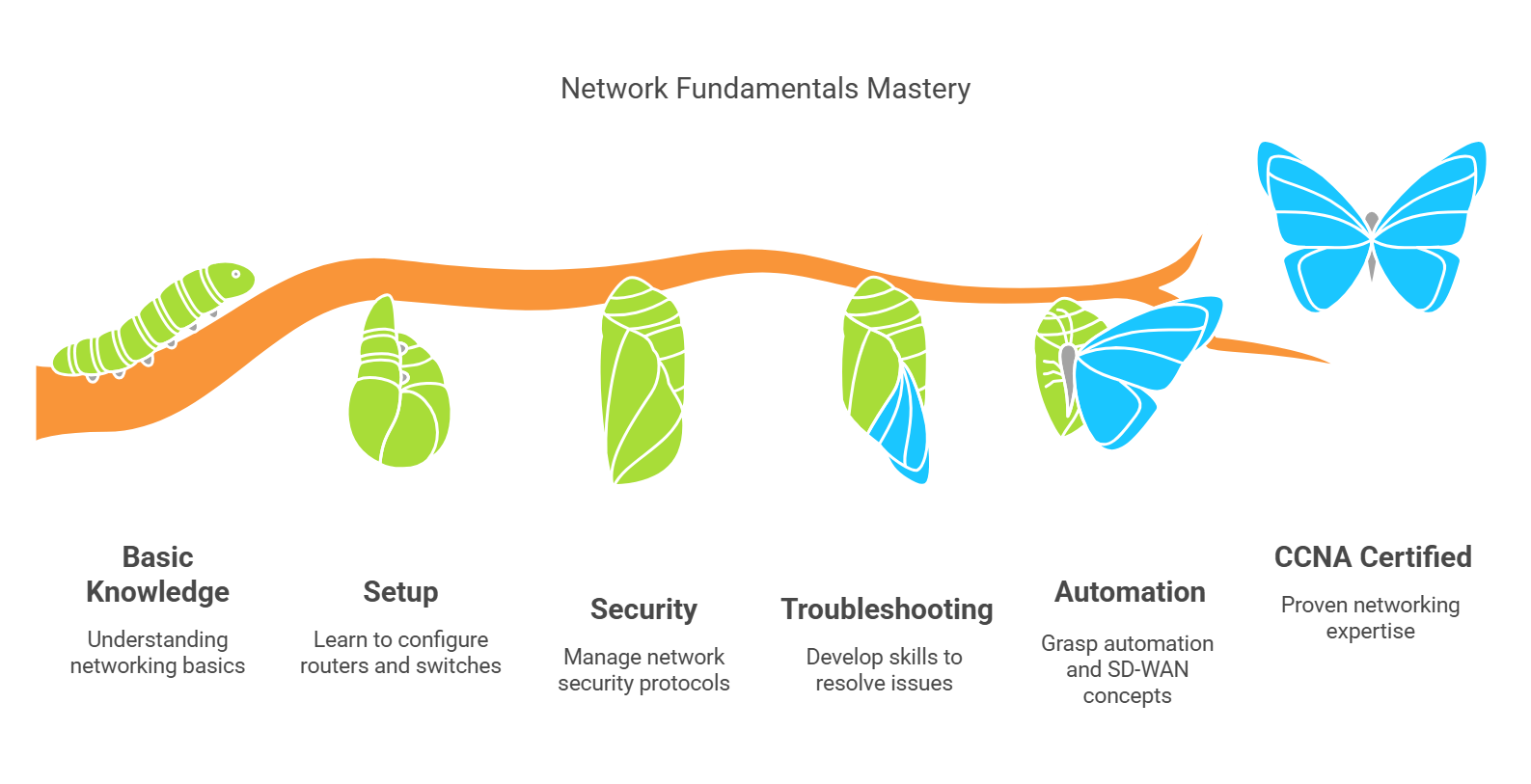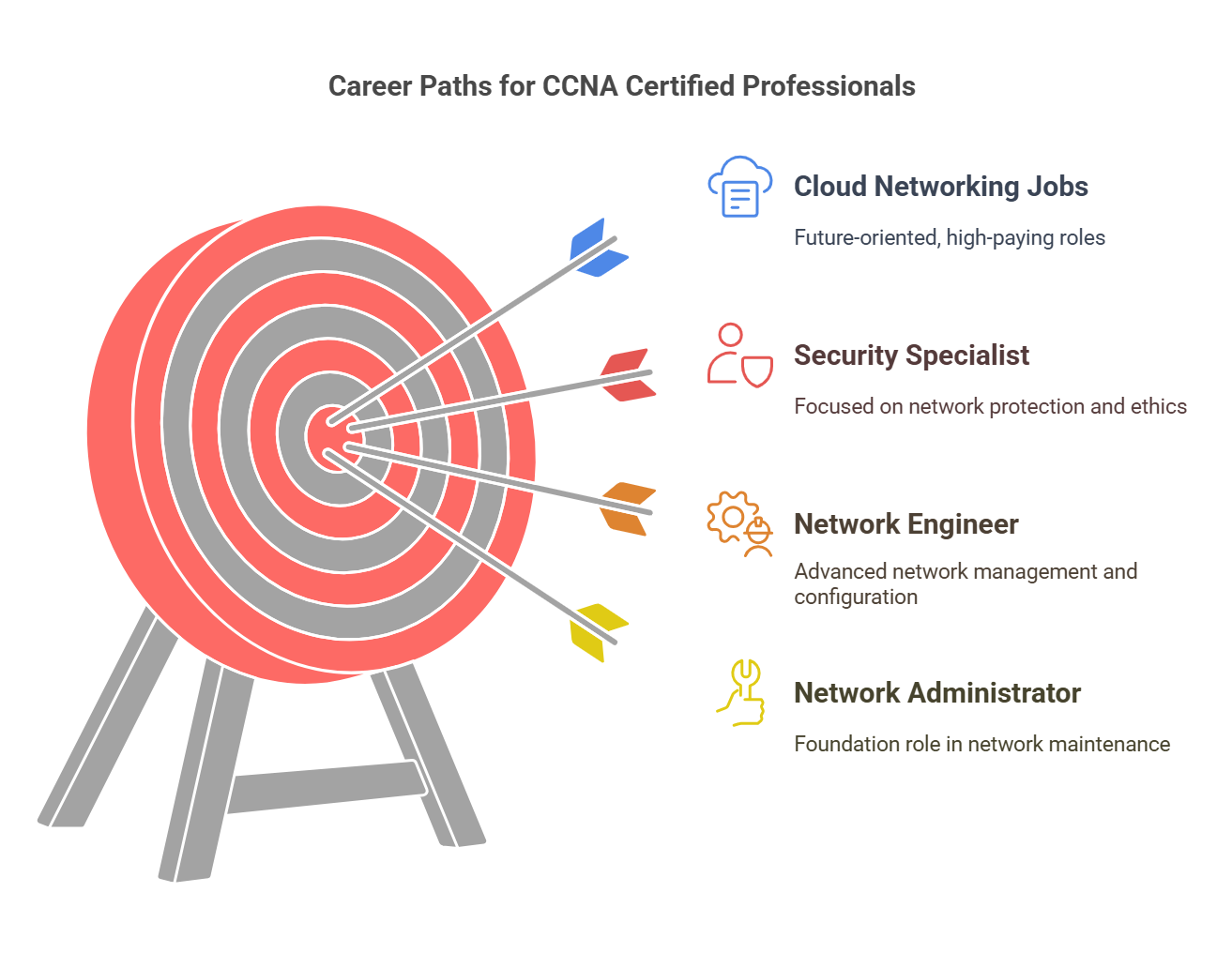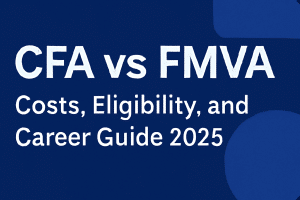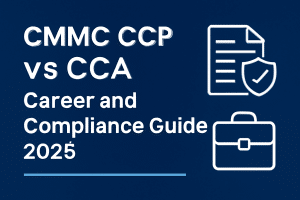If you’re considering CCNA 200-301 certification in 2025, you might be wondering about CCNA 200-301 jobs and salary expectations and potential. Despite advancements in cloud and automation, networking remains essential, and CCNA-certified professionals are still in demand. This guide explores how much you can earn, the best career paths, and how to make the most of your certification in today’s job market.
CCNA 200-301 Certification: How Much Can You Earn and What Jobs Await in 2025?
Is CCNA 200-301 Still Worth It in 2025? Here’s What You Should Know
Tech keeps shifting. AI, automation, and cloud computing are everywhere. But that doesn’t mean networking jobs are disappearing. In fact, they’re growing. Businesses still rely on solid networks, and they need people who know how computer network to keep things running. That’s where CCNA 200-301 comes in.
Plenty of folks think “Networking is outdated” because of all the hype around cloud and DevOps. But here’s the reality, every cloud setup needs networking pros. And security and network performance? That’s a huge concern for companies in 2025. If networks aren’t secure, everything falls apart.
The CCNA 200-301 cert proves you know the fundamentals:
- Setting up routers and switches
- Managing network security
- Troubleshooting issues
- Understanding automation and SD-WAN
If you’re exploring whether CCNA is right for you or how to prepare effectively, check out CCNA 200-301 Exam: Tips and Study Guide for Success for a full breakdown of topics, exam format, and study strategies.
Hiring managers still look for CCNA-certified pros when filling roles like Network Engineer, IT Support Specialist, and Security Analyst. Even in a world of automation, someone has to configure devices, monitor, and fix networks when things go sideways.

Networking Isn’t Going Anywhere, It’s Just Changing
Some jobs in IT are disappearing. But networking? Nope. It’s evolving.
- Companies are shifting to hybrid networks (mix of on-site and cloud).
- SD-WAN is growing, but it still needs skilled engineers to handle configs.
- IoT and 5G are expanding, which means more demand for network pros.
- Cybersecurity is a major issue, every company needs secure networks.
Think about it: Every big tech shift needs a backbone. That’s networking. AI won’t replace it. Cloud won’t erase it. Companies still need skilled professionals to build, maintain, and troubleshoot their infrastructure.
If you’re looking at CCNA 200-301 in 2025, you’re making a smart move. It’s one of the best ways to break into IT, and it opens doors to higher-paying roles for data center technician and data center operations.
This isn’t just a piece of paper. If you get hands-on experience with Cisco gear or lab setups, this cert can take you far.
What Salary Can You Expect with a CCNA 200-301 Certification?
So, you got your CCNA. How much can you actually make? The answer isn’t one-size-fits-all. It depends on a bunch of things where you live, how much experience you have, the industry you’re in, and whether you stack other certs on top.
CCNA 200-301 Jobs & Salary Outlook (2025)
| Experience Level | Common Job Roles | Salary Range (Annual) |
|---|---|---|
| Entry-Level (0–2 years) | Help Desk Technician, Network Support Specialist, IT Technician | $50K – $75K |
| Mid-Level (3–5 years) | Network Administrator, Network Engineer, Cybersecurity Analyst | $80K – $110K |
| Senior-Level (5+ years) | Senior Network Engineer, Network Security Engineer, Cloud Networking Architect | $120K – $150K+ |
| Note Salaries vary by location, industry, and additional certifications (e.g., CCNP, Security+, AWS/Azure). Tech hubs like NYC, London, and Sydney pay at the higher end. |
||
If you’d like to see where you currently stand in terms of readiness, try a free CCNA 200-301 practice question, it’s a quick way to gauge how close you are to turning prep into a paycheck.
Latest Salary Trends for CCNA-Certified Professionals in 2025
Networking jobs are still paying well in 2025. Companies need reliable networks, secure connections, and IT support and they’re willing to pay good money for it. On average:
- Entry-level CCNA professionals: $50K – $75K per year
- Mid-level networking jobs: $80K – $110K per year
- Senior-level engineers & specialists: $120K – $150K+ per year
Big cities and tech hubs (New York, San Francisco, London, Sydney, etc.) offer higher salaries, but remote work is making location less of a factor for many companies.
What Affects Your CCNA Salary?
Where you work – Networking salaries vary by country, state, and city. Tech hubs = higher pay. Small towns? Not so much.
Years of experience – A fresh CCNA won’t earn as much as someone with five years under their belt. That’s normal in IT.
Industry – Finance, healthcare, and cloud companies usually pay better than small businesses.
Extra certs – Stacking CCNA with CCNP, DevNet, Security+, or cloud certs can boost pay BIG time.
Job role – Not all networking jobs pay the same. Let’s break it down.
Entry-Level CCNA Jobs (0-2 Years Experience) – $50K-$75K
At the start, you’re likely to land a job in:
🔹 Help Desk Technician – Fixing networ connectivity issuess, troubleshooting basic problems. ($50K-$60K)
🔹 Network Support Specialist – Monitoring systems, basic troubleshooting. ($55K-$70K)
🔹 IT Technician – Setting up hardware, assisting with networking tasks. (~$55K-$75K)
Mid-Level Networking Jobs (3-5 Years) – $80K-$110K
With experience, you can level up to:
🔹 Network Administrator – Managing company networks also responsible for, handling security. ($75K-$90K)
🔹 Network Engineer – Configuring and maintaining networks, higher responsibilities. ($85K-$110K)
🔹 Cybersecurity Analyst – Protecting network infrastructure. (~$90K-$110K)
Senior-Level Networking Roles (5+ Years) – $120K-$150K+
With years of hands-on work, things start to pay REALLY well:
🔹 Senior Network Engineer – Advanced troubleshootin technical supportg, handling enterprise networks. ($120K-$140K)
🔹 Network Security Engineer – Securing high-level networks. ($130K-$150K+)
🔹 Cloud Networking Architect – Blending networking with cloud services. (~$140K-$160K+)
To get a complete overview of exam objectives, structure, and essential networking concepts, explore our detailed CISCO CCNA 200-301 certification guide.
Best Networking Careers You Can Pursue with CCNA 200-301 in 2025
A CCNA opens doors, but which one should you walk through? Here are some of the best career paths for CCNA-certified pros in 2025.
Network Administrator – Keeping Everything Running
What You Do: Set up and maintain company networks, see network problems, troubleshoot issues, and ensure everything runs smoothly.
Salary Range: $75K – $90K
Good for: Those who like hands-on work and problem-solving.
Network Engineer – More Advanced, More $$$
What You Do: Configure, install, secure, and manage networks on a larger scale.
Salary Range: $85K – $110K
Good for: Tech enthusiasts who want to go beyond basic troubleshooting.
Security Specialist – Cybersecurity Pays Well
What You Do: Protect networks from attacks, secure company data, and monitor threats.
Salary Range: $90K – $130K
Good for: Those interested in technical knowledge, security and ethical hacking.
Cloud Networking Jobs – The Future of IT
What You Do: Work with cloud services (AWS, Azure, Google Cloud) while managing traditional networks.
Salary Range: $100K – $140K+
Good for: IT pros who want to mix networking with cloud skills.

Freelancing & Remote Jobs – Work from Anywhere
What You Do: Offer networking services remotely, set up and move networking equipment, manage IT systems for clients.
Salary Range: Varies (Some freelancers make $100K+ per year)
Good for: People who want flexibility and control over their schedule.
So, Is CCNA a Good Career Move in 2025?
Short answer? Yes. Networking isn’t going anywhere, but users and companies still need pros who know their way around routers, switches, and security.
If you want to maximize your earning potential, don’t stop at CCNA. Get hands-on experience, build lab projects, and consider adding CCNP, DevNet, Security+, or cloud certs to your resume.
Want to land a high-paying networking job? Start with CCNA, but keep learning. The more skills you bring to the table, the more you’ll earn.
Final Thoughts – Is CCNA 200-301 Worth It in 2025?
If you’re serious about a networking career, CCNA 200-301 is still a solid choice in 2025. The demand for skilled networking professionals isn’t slowing down, companies need experts to manage networks, secure data, and integrate cloud technologies. Whether you aim to become a Network Engineer, Security Specialist, or Cloud Networking Expert, this cert can open doors to high-paying jobs.
Want to pass CCNA on your first attempt? Preparation matters. Visit Cert Empire for high-quality certification content, trusted by thousands of networking professionals preparing for real-world exams.. Their resources can help you gain confidence, understand key concepts, and crack the CCNA exam with ease. For direct access to practice files tailored to Cisco’s latest blueprint, check out the CCNA 200-301 exam dumps from Cert Empire. They’re updated, focused, and easy to use.
The job market is competitive, but with the right skills and preparation, you can secure a great career in networking. Start now, get certified, and step into a high-paying IT role in 2025!
FAQs – Answering the Most Searched Queries on CCNA Jobs and Salary
1. What is the average salary of a CCNA-certified professional in 2025?
The average salary for CCNA-certified professionals in 2025 ranges from $50K – $150K, depending on experience, location, and job role. Entry-level positions start around $50K – $75K, while senior roles can go beyond $120K+.
2. Can I get a job with just CCNA certification and no experience?
Yes, but it’s competitive. Many entry-level roles like Help Desk Technician, Network Support Specialist, and IT Technician accept CCNA-certified candidates with little or no experience. Hands-on practice and home labs can boost your chances.
3. What networking jobs pay the highest with a CCNA certification?
High-paying roles include Network Security Engineer ($100K+), Cloud Network Engineer ($110K+), and Senior Network Engineer ($120K – $150K). Adding CCNP, Security+, or cloud certs can increase your earning potential.
4. How long does it take to get a high-paying job after CCNA?
It depends. With experience and additional certs, you can move to a six-figure salary in 3-5 years. Fast-track options include specializing in security, cloud, or automation.
5. Is CCNA better than cloud certifications for networking careers?
Both are valuable, but CCNA builds core networking knowledge, while cloud certs (AWS, Azure) focus on cloud software and infrastructure. Combining both makes you more employable and increases salary potential.
6. Which cities or countries offer the highest salaries for CCNA-certified professionals?
The highest salaries are in tech hubs like San Francisco, New York, London, Sydney, and Singapore. Countries like the U.S., Canada, Australia, Germany, and the U.K. pay well for skilled networking professionals.
7. Can CCNA help me switch careers to cybersecurity or cloud computing?
Yes! CCNA covers networking security fundamentals well, which are crucial for both cybersecurity and cloud roles. To switch, consider adding Security+ (for cybersecurity) or AWS/Azure certs (for cloud computing).
Last Updated on by Team CE



























